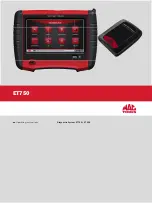
1.5
Hydraulic Safety
• Always
place
all
hydraulic
controls
in
Neutral
before dismounting.
• Make sure that all components in hydraulic system are
kept clean and in good condition.
• Replace any worn, cut, abraded, flattened, or crimped
hoses and steel lines.
• Do
NOT
attempt any makeshift repairs to hydraulic
lines, fittings, or hoses by using tapes, clamps, cements,
or welding.
The hydraulic system operates under
extremely high pressure.
Makeshift repairs will fail
suddenly and create hazardous and unsafe conditions.
Figure 1.11: Testing for Hydraulic Leaks
• Wear proper hand and eye protection when searching
for high-pressure hydraulic leaks.
Use a piece of
cardboard as a backstop instead of hands to isolate
and identify a leak.
• If injured by a concentrated high-pressure stream of
hydraulic fluid, seek medical attention immediately.
Serious infection or toxic reaction can develop from
hydraulic fluid piercing the skin.
Figure 1.12: Hydraulic Pressure Hazard
• Make sure all components are tight and steel lines,
hoses, and couplings are in good condition before
applying pressure to a hydraulic system.
Figure 1.13: Safety around Equipment
214048
6
Revision A
Summary of Contents for DWA
Page 6: ......
Page 18: ......
Page 48: ......
Page 60: ......
Page 62: ...REPAIR PARTS 5 1 Deck Draper and Rollers 214048 54 Revision A...
Page 64: ...REPAIR PARTS 214048 56 Revision A...
Page 66: ...REPAIR PARTS 214048 58 Revision A...
Page 68: ...REPAIR PARTS 5 2 Linkage and Deck Support 214048 60 Revision A...
Page 70: ...REPAIR PARTS 214048 62 Revision A...
Page 72: ...REPAIR PARTS 214048 64 Revision A...
Page 74: ...REPAIR PARTS 5 3 Decals and Reflectors 214048 66 Revision A...
Page 76: ......
Page 94: ......
Page 96: ......
Page 97: ......















































